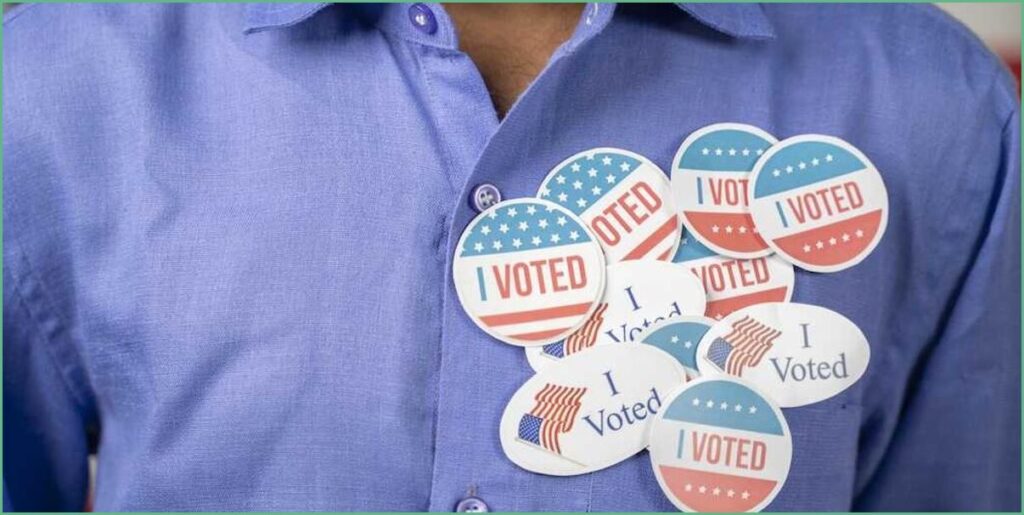Most Americans assume you have to prove you are a citizen to register to vote. That assumption has been wrong for years, but a new rule from the Trump administration aims to change that. This piece explains why requiring documentary proof matters and how it responds to widespread public belief and real vulnerabilities.
Voters across the political spectrum want one simple thing: only U.S. citizens should decide our elections. A recent poll found overwhelming support for requiring proof of citizenship at registration, even among many who typically side with Democrats. That gap between belief and reality is the core problem this rule tries to fix.
“By requiring proof of citizenship at the point of registration, the Trump administration is doing what most Americans already assumed was happening.”
The honor system invites abuse
Today, the standard for registering is often a checkbox and a signature, not a document that proves you are a citizen. That setup creates an honor system that makes it too easy for noncitizens to slip onto voter rolls, whether by mistake or through intentional schemes. When registration is treated as a casual formality, confidence in elections takes a hit.
Independent researchers and public data have shown troubling numbers of noncitizens registered in multiple states, and those aren’t just theoretical estimates. We’ve seen criminal cases where foreign nationals were arrested for submitting false registrations or even casting ballots. These incidents aren’t confined to one state; they crop up in swing and safe states alike.
Examples include foreign nationals charged with submitting fraudulent applications, public employees arrested for immigration violations while appearing on voter lists, and local officials admitting our systems let noncitizens register. Taken together, those cases form a pattern that should make any voter uneasy. You don’t defend elections by pretending the problem doesn’t exist.
The current approach relies on election staff to verify citizenship, but the tools and procedures are inconsistent. Some offices cross-check with driver’s license databases, some do not, and some rely entirely on self-attestation. That patchwork invites uneven enforcement and the very mistakes that cost trust in the system.
Opponents argue that documentary checks will disenfranchise eligible voters, especially the poor or elderly who may lack easy access to documents. That concern is legitimate and solvable if policies include accessible ways to prove citizenship and reasonable assistance, not a blanket refusal to secure registration. A fair system protects citizens and accommodates legitimate voters who need help meeting clear requirements.
The Trump administration steps in
President Trump signed an executive order pushing for mandatory proof of citizenship at registration, and the Election Assistance Commission has proposed a rule to implement that idea. That move is about aligning policy with what most voters expect: registration should start with verification, not assumption. It’s an administrative step toward closing a long-known gap in the system.
The proposed rule would require documentary evidence at the point of registration, which simplifies one of the most basic checks in a democracy. If you want to exercise the exclusive right to vote in U.S. elections, you should be able to show you are legally entitled to do so. This is about matching practice to principle.
Supporters plan to submit comments in favor of the rule, urging that it strike the right balance between security and accessibility. That includes asking for sensible procedures that help eligible citizens comply without creating unnecessary barriers. The goal is to restore confidence in the ballot box while keeping the process reasonable and fair.
Fixing registration verification is not a panacea for all election integrity concerns, but it is a practical, targeted reform. It addresses the first point of contact: who can put their name on the rolls. If registration is tightened responsibly, later steps in the process become that much more reliable.
Critics will say this is partisan or aimed at suppressing turnout, but the public does not see it that way; they see it as basic stewardship of their democracy. When 87 percent of likely voters support a common-sense check, ignoring that consensus damages institutions more than strengthening them. Government should reflect and protect the public’s expectations.
There are sound ways to implement documentary checks while ensuring no eligible citizen is turned away because of paperwork problems. Mobile assistance, extended hours, and free document replacement programs can reduce friction. Designing rules that both protect the vote and help voters comply is entirely possible and politically wise.
Ultimately, elections depend on trust. When people worry that the voter rolls include those who shouldn’t be there, turnout and civic engagement suffer. Requiring proof of citizenship at registration is a straightforward step to rebuild that trust by ensuring only citizens can claim the exclusive right to vote.
Republicans have pushed for stronger safeguards because we believe in secure, fair elections that reflect the will of citizens. This rule is not about politics; it’s about making the system match the plain expectation of voters: Only Americans decide America’s future. That is a principle worth defending and a reform worth pursuing.

BackyardProduction via iStock/Getty Images
